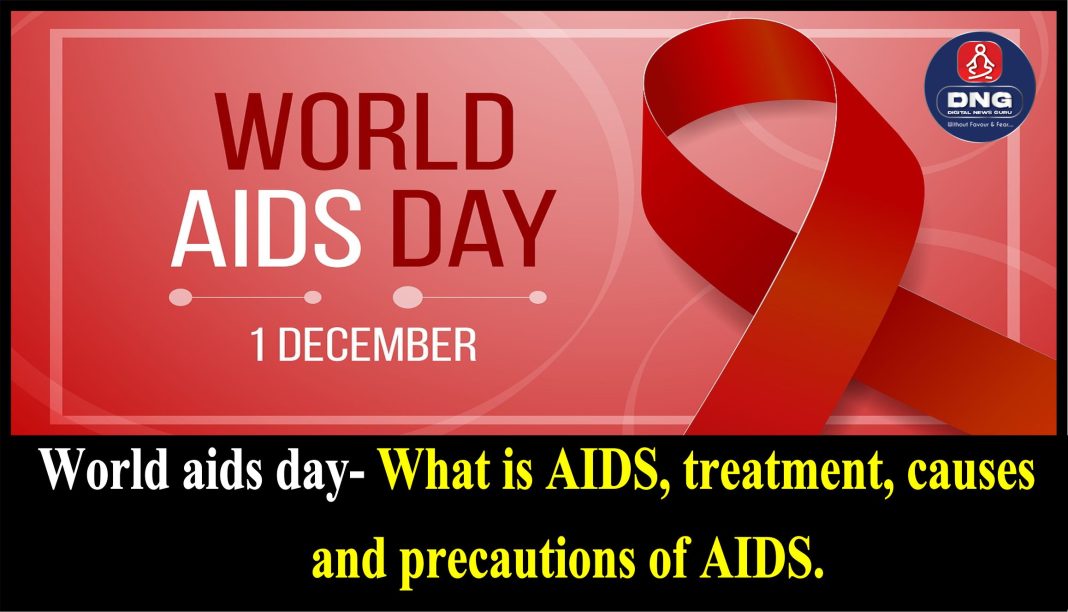World aids day- What is AIDS, treatment, causes and precautions of AIDS
Digital News Guru Health Desk: World Aids Day is observed every year on 1st December. It’s a day to raise awareness of the AIDS pandemic among the people.
People around the world unite to show support for people living with and affected by HIV and to remember those who lost their life from HIV/AIDS.
Each World AIDS Day focuses on a specific theme, which this year will be Let Communities Lead. Because change depends not on a moment but on a movement, the message “Let Communities Lead” will not only ring out on one day.
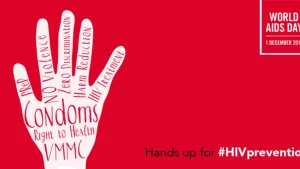
The red ribbon is the global symbol for solidarity with HIV-positive people and those living with AIDS.
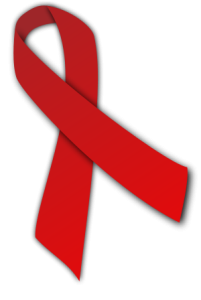
What is HIV & AIDS:-
Fullform: HIV- Human immunodeficiency
AIDS- Acquired Immuno Deficiency Syndrome
HIV :- Human immunodeficiency virus is a virus that attacks cells that help the body fight infection, making a person more vulnerable to other infections and diseases. It is spread by contact with certain bodily fluids of a person with HIV, most commonly during unprotected sex (sex without a condom or HIV medicine to prevent or treat HIV), or through sharing injection drug equipment.
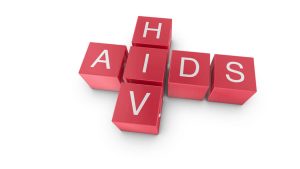
AIDS:- AIDS is the late stage of HIV infection that occurs when the body’s immune system is badly damaged because of the virus.
In the U.S., most people with HIV do not develop AIDS because taking HIV medicine as prescribed stops the progression of the disease.
Where did HIV/AIDS come from?
HIV infection in humans came from a type of chimpanzee in Central Africa. HIV is thought to have occurred after people ate chimps that were carrying the Simian Immunodeficiency Virus (SIV).
HIV is a type of lentivirus, which means it attacks the immune system. SIV attacks the immune systems of monkeys and apes in a very similar way. This suggests HIV and SIV are closely related, and that SIV in monkeys and apes crossed over to humans to become HIV.
Over decades, HIV slowly spread across Africa and later into other parts of the world. The virus has existed in the United States since at least the mid to late 1970s.
Symptoms of HIV/AIDS
AIDS refers to acquired immunodeficiency syndrome. With this condition, the immune system is weakened due to HIV that’s typically gone untreated for many years.People with HIV may develop AIDS if their HIV is not diagnosed until late or if they know they have HIV but don’t consistently take their antiretroviral therapy.Without proper and consistent treatment, people living with HIV can develop AIDS sooner. By that time, the immune system is quite damaged and has a harder time generating a response to infection and disease.
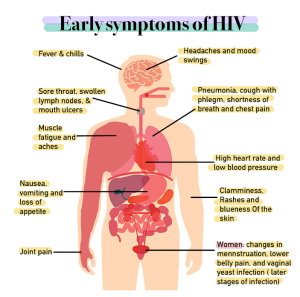
Symptoms of AIDS can include:
➡️Recurrent fever
➡️Chronic swollen lymph glands, especially of the armpits, neck.
➡️Night sweats
➡️Dark splotches under the skin or inside the mouth, nose, or eyelids.
➡️Sores, spots, or lesions of the mouth and tongue, genitals.
➡️Recurrent or chronic diarrhea
➡️Rapid weight loss
➡️Neurologic problems such as trouble
➡️Concentrating, memory loss, and confusion.
➡️Anxiety and depression
Is there a cure for HIV?
There is currently no cure for HIV, but there are many treatment options that can slow the progression of HIV significantly.
Treatment of AIDS:- Treatment should begin as soon as possible after a diagnosis of HIV, regardless of viral load.
The main treatment for HIV is antiretroviral therapy, a combination of daily medications that stop the virus from reproducing. This helps protect CD4 cells, keeping the immune system strong enough to take measures against disease.
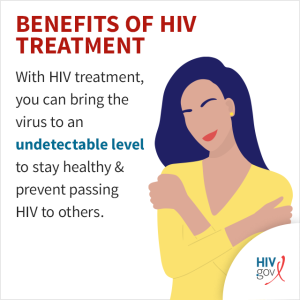
How do you reduce your risk of getting AIDS?
The best way to reduce your risk of HIV is to be aware of how it spreads and protect yourself during certain activities. Having sex without a condom and sharing needles to take drugs are the most common ways that HIV spreads.
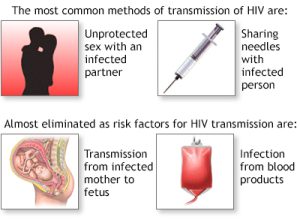
These are some ways to reduce your risk:
➡️Use latex condoms (rubbers) whenever you have any type of sex.
➡️Don’t use condoms made from animal products.
➡️Use water-based lotions.
➡️Never share needles to take drugs.
➡️Avoid getting drunk or high. Intoxicated people might be less likely to protect themselves.
➡️Consider getting tested to know if you can pass HIV to others.
World AIDS Day brings nations, communities, and individuals together in a shared commitment to end the spread of HIV, ensure universal access to treatment, and support those affected.
You May Also Read: Snowstorm hits Ukraine on Sunday, kills 10 people



